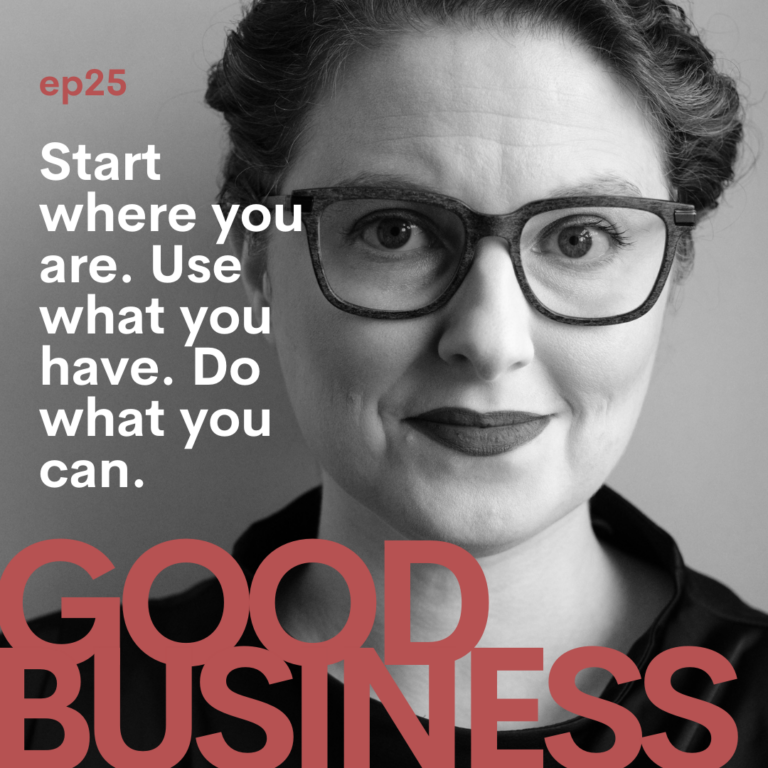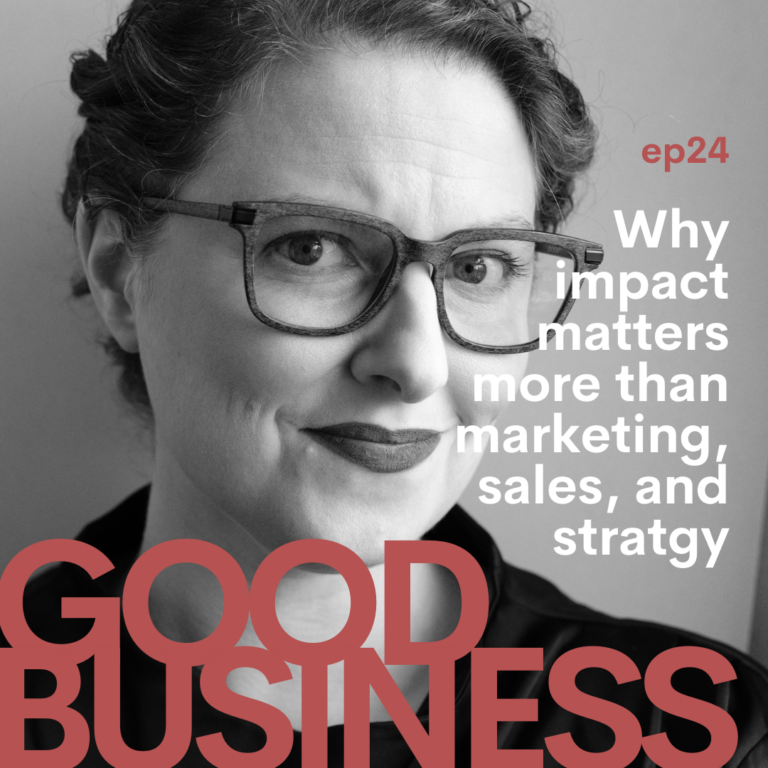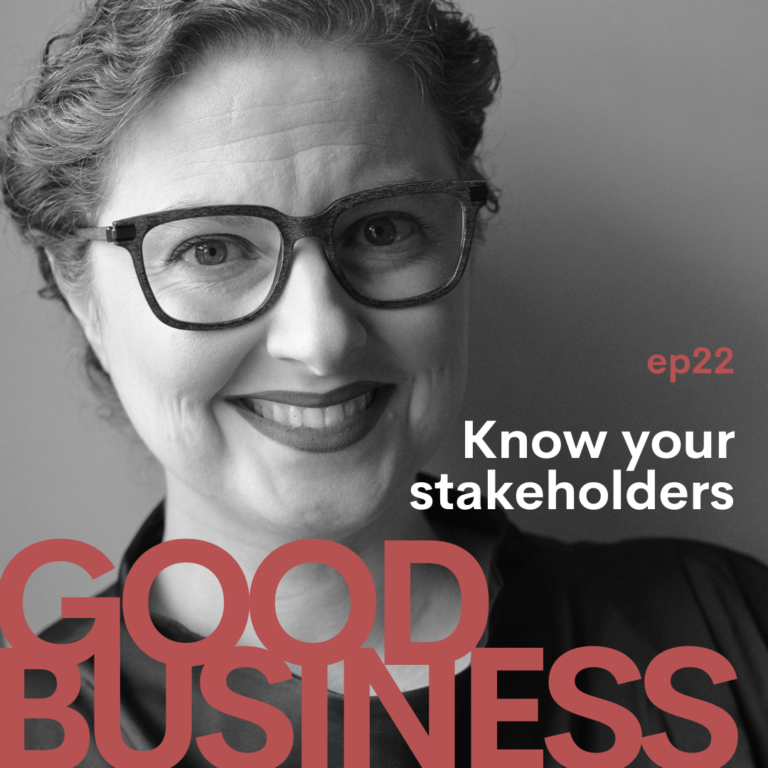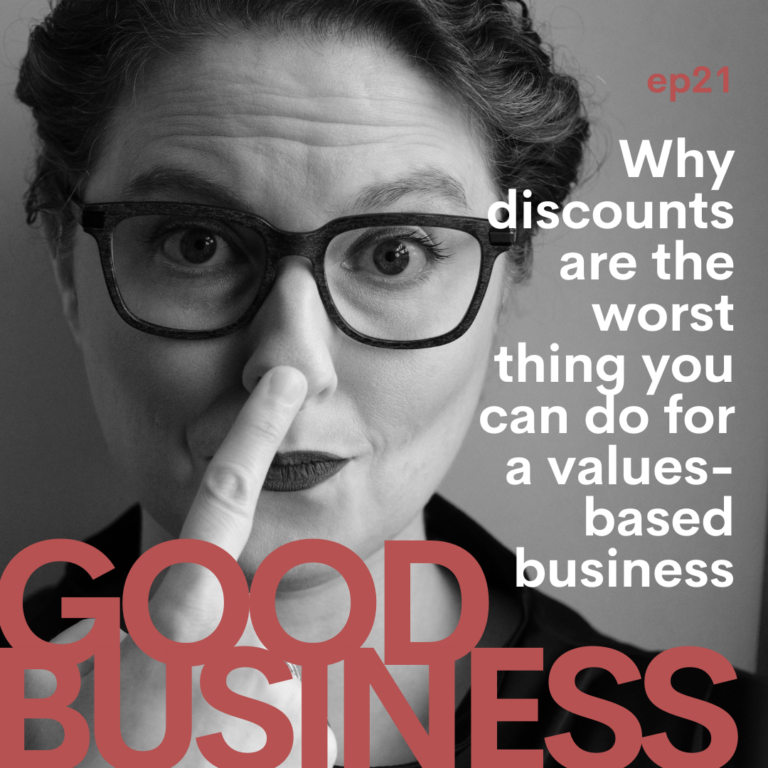Are you wondering if you should quit? Keeping the focus on non-client business initiatives (because knowing when to quit a client project is a whole other series), this episode teaches a methodology including 4 key questions to help you evaluate when to stick with something or let it go. Learn how to identify your motivations, confront self-doubt, and make decisions that align with your goals and values.
[NOTE: The text below was generated with the help of AI. I do not advocate for the use of AI in copywriting in general, but see it as a useful tool for improving efficient editing of my own creative content. None of the actual content of the episode or the transcript was AI-generated. I just let the computer help me clean up the text so it can be more easily understood and consumed. ~i.]
Reaching a Milestone and Reframing Quitting
This episode marks the 60th of the podcast, a surprising milestone considering most podcasts fizzle out around episode 10. Illana celebrates this achievement and uses it to introduce the core theme: deciding when to stick with something or when to quit.
While societal pressure often pushes us to “finish everything,” quitting can be a valuable strategy. Illana references a previous episode exploring this concept and shares personal experiences with quitting.
Focus: Non-Client Business Initiatives
It’s important to clarify the specific context of this episode: evaluating when to quit non-client-related business initiatives. These are projects you undertake to promote yourself or your work, not projects directly tied to clients. Examples include unfinished books, podcasts with low listenership, or sporadic blog posts.
4 Core Questions for Evaluation
Illana outlines four key questions to guide your decision-making process:
-
Why did you start and what was the desired outcome? Aim for at least two areas of satisfaction (e.g., personal growth, financial gain) connected to your desired outcome. Having multiple areas of satisfaction provides better motivation during challenging phases. Consider aiming for three to four areas for increased resilience.
-
Why do you want to quit or stay? Be honest with yourself and verbalize your reasons. This can help identify underlying fears and self-doubt disguised as logical justifications. While fear and self-doubt are valid reasons to quit if overwhelming and detrimental to your mental health, self-awareness is crucial to avoid future regrets and starting new things. Illana offers guidance on how to constructively manage these emotions to learn and grow.
-
What are the tangible and intangible upsides of both options? Disregard the downsides for this exercise as they can be misleading and hinder clear decision-making. Instead, focus on identifying and comparing the upsides of quitting and staying. The list you find more appealing can offer valuable insights.
-
What do you actually want next in this area of your life? This straightforward question asks whether your progress aligns with your desired future. Even small progress can be significant if it leads towards your goals. Ultimately, continuing aligns with your initial desires and progress, while quitting signifies a misalignment.
Thanks for listening!
More Episodes
Start where you are. Use what you have. Do what you can. | GB 25
Today’s episode of The Good Business Podcast is all about my very favorite quote in the whole world. “Start where you are. Use what you have. Do what you can.” by Arthur Ashe
Why impact matters as much as marketing, sales, or strategy. Maybe more. | GB24
Today’s episode is less of a lesson than recent episodes. Instead, today we’re making a case for a topic we’ll be talking a LOT more about in the future: IMPACT. What it is. Why it matters. And how to pay attention to it.
Market visibility for people who care about other people | GB23
Today is a branch off of our stakeholder conversation. If you listened to that episode, you should have a clear picture of exactly who matters to you and your work and why, as well as how much time you have for your work without sacrificing what those VIPs need and expect from you. Next up, we talk about exposure, protection, and the responsibility you have to those who matter most.
Know Your Stakeholders | GB22
In this episode, I’m going to walk you through how to think about establishing your stakeholders, the steps you need to take to do so, and how to make decisions based on who they are without compromising those big fat dreams we’ve been talking about.
Pricing Basics: Why discounts are almost never a good idea | GB21
Today’s episode dovetails on our last one, where we talked all about how your value isn’t determined by your price tag. Today, we’re talking about discounts. First, we’ll talk about why businesses offer them, what their purpose is and when they ARE a good idea. Then we’ll talk about why they are probably a bad idea for you and what to do instead.
Pricing Basics: Your value is not attached to your price | GB20
This episode breaks down the popular trope that if you don’t charge a lot, people won’t value your work. First, we talk about the conditions that make this a common piece of advice. Then I lay out why this is complete crap for certain kinds of businesses. Finally, the episode wraps up with a brief primer on how to think about pricing in a way that serves your people AND your bigger dreams for yourself.






